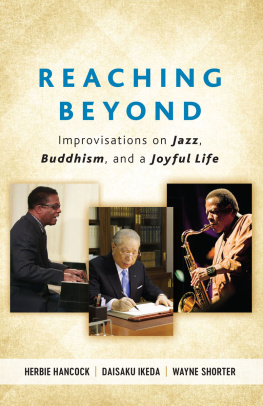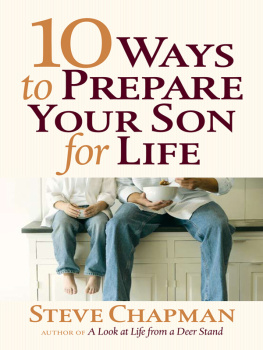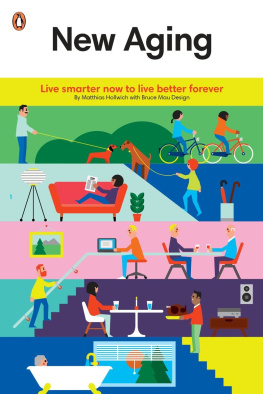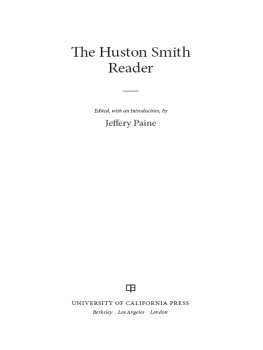Copyright Fr. Romuald P. Zantua, D.S. 1999
Cover art by Benjamin Agravante, Jr.
Illustrations by Jo Luna
ePub design and production by Flipside team
eISBN 978-971-9922-41-4
This e-book edition published 2011
by Flipside Digital Content Company, Inc.
Quezon City, Philippines
www.flipsidecontent.com


Dear Reader,
Even if you are not yet 60, don't be afraid to read this e-booklet. It's totally harmless.
If you received this as a gift, and you're tempted to give it to someone else who might profit more from it, please do so. After all, Our Lord said, "The gift you receive, give as a gift." (Mt 10:8). And the first Pope in his first letter practically said the same thing (1 Pt 4:10).
Enjoy!
Fr. Romuald P. Zantua, D.S.
and the Discipuli Spei community
T hirty-seven years ago I used to be the youngest member of the clergy in my diocese. They used to classify priests like myself as the "junior clergy," especially during conferences on ongoing formation. Now I belong to the "senior" clergy category, a description I never thought could apply to me.

When 60 becomes the new 30, mathematics becomes the new fountain of youth.
This reality dawned on me six years ago at the blessing of our community house in Houston. I took the opportunity of asking a recently ordained auxiliary bishop of Galveston-Houston diocese to make as his first episcopal act the blessing of our house. To make it more solemn I sent out a computer-generated invitation and 19 priests including the bishop and the local pastor came.
At the simple refreshments that followed the blessing I said to the 45-year old Prelate: "Bishop, Vasquez, today I am now convinced I am old. When I am older than the pastor and the bishop I must really be old." The young bishop just smiled without any protestation. Since becoming aware of my superiority in age over my ecclesiastical superiors, I have developed a profound sense of peace and contentment that probably should come with age.

As you see, growing old is not that bad.
If you are 60 or above, I would like to share with you some ideas which might be worth reflecting on. You may have already heard some of these in homilies, talks, etc. After all, there is really nothing new in this world. As a guide I will use the acronym, "S.I.X.T.Y." and explain what each of the letters stands for.

The letter "S"
The letter "S" stands for simplicity. At sixty, I should simplify my life. Six decades is sixty years. There was a time when I thought to be 30 was already old. Now at 60 I have doubled that. When a person has lived for 60 years, life will have become, by necessity, complicated. At 60, I should start simplifying my life by throwing away excess luggage: the old notes I will never use in the future, which just clutter up my trunk, my shelves and my cardboard boxes. I should learn to discard things permanently and without regrets. If I open my closet and I find clothes I haven't worn for sometime, I should put them in a big box to give away to people even total strangers. I'm sure others can have a better and more frequent use for them than I.

Shoes that still fit, belts, cups, wrist watches that don't tell time anymore but still have some value, etc., all should be given away. Perhaps not in a single day, but one by one, if possible, every single day for the rest of my life.
I heard that some monks in India, when they reach 50, which already is half a century, they already start giving away the things they have accumulated for the past 50 years. They stop buying new things. They stop accepting gifts. For five decades they have been receivers.
Now at 50 and for the remainder of their lives they wish to be givers. Like them, therefore, I should also look for something to give to someone, if not every day, at least as often as I can. And not just the things I don't need, but even the things I need, but which others perhaps need more than I do. I must make it a habit to be a giver and perhaps someday I will end up giving away what is equivalent to a "widow's mite." And we know what Our Lord said about the widow's miteit was more than what others gave from their surplus.

"Honey, give my tennis racket to Dr. de Leon."
I must simplify by subtraction. That's one formula for living according to my age with grace and love.

"After much prayerful reflection, I've decided to simplify our annual budget: 1/3 for the youth; 2/3 for the elderly."
If I have some financial resources which already allow me and my small community to eat three meals a day and have a roof over our heads, and do our apostolate, I should not think of amassing more. That would be too time-consuming and energy-draining. New investments just complicate life. At 60 I should be relying more on divine providence knowing that the God I serve will never abandon me and my community. At 60 (if I were a layman with political ambitions) I should not enter politics any more. I believe that at 60 a president of a country should not wage war against another, even if it's a just war, (if there's still such a thing as a just war). At 60 a president should not acquire new enemies, and worse, destroy lives.
At 60 the greater my responsibilities are, the more I should simplify my life and my lifestyle. One way of simplifying them is to endorse responsibilities to others, to delegate, to allow others to make mistakes and learn from them. I should trust the younger generation to which I once belonged. I should stop worrying at all, and never micro-manage the lives of others. To simplify is to surrender everything to God.

The letter "I"
"I" stands for integration. It's an overused word nowadays. At 60, I should begin integrating the many scattered pieces of my life. I should begin to see the nexi, the connection between various events, big and small, even if my life-journey is not yet over. To integrate means to have the wisdom to accept even the tragedies and misfortunes with serenity. It means that I should learn to see things in the larger canvas. To be able to integrate means I can readily see the finger of God in my personal history, convinced that nothing happens by chance, that everything is planned by a loving God to whom nothing is impossible. To integrate means to hope, even in the face of death.

Next page



















